Grape Pie (aka Grapple Pie)
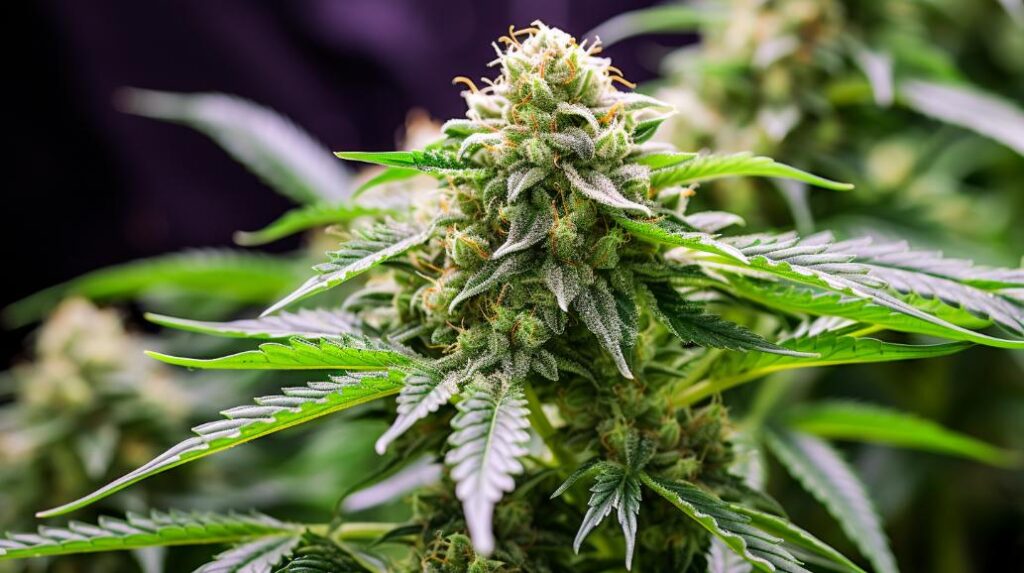
The Grape Pie strain, with its distinctive blend of sour and sugary grape aromas, presents a fascinating subject for discussion within the cannabis community. As an indica-leaning hybrid, its lineage, a cross between Cherry Pie and Grape Stomper, raises questions about the nuanced effects its unique genetic makeup may have on users, particularly regarding therapeutic potential versus possible adverse effects.
Given its reported high THC potency and the varied experiences of users, ranging from euphoria to potential anxiety, the conversation around Grape Pie strain extends into broader topics of cannabis use for wellness versus recreational enjoyment. This opens up a dialogue on how individual genetics may influence reaction to specific strains, inviting further exploration into its place within the cannabis spectrum.
Genetic Lineage
Exploring the genetic lineage of the Grape Pie strain, it is notable that this indica-dominant hybrid descends from the renowned Cherry Pie and Grape Stomper strains, inheriting a complex genetic profile that includes influential strains such as Sour Diesel and Grandaddy Purp. This amalgamation of genetics contributes to its distinctive characteristics, both in cultivation and in its final bud structure. Cultivators of Grape Pie appreciate the strain’s sturdy growth patterns, which can be ascribed to its robust genetic foundations. The strain’s lineage guarantees a resilient plant that can thrive in various growing conditions, making it a favored choice among craft cannabis cultivators.
The buds of Grape Pie are visually striking, featuring vibrant orange pistils that stand out against the dense, round nugs. This visual appeal is further enhanced by the presence of frosty amber trichomes, which are indicative of the strain’s potency and its complex terpene profile. The sugary grape aromas, a direct nod to its Grape Stomper ancestry, are complemented by the subtle undertones inherited from Cherry Pie, creating a sensory experience that is both unique and highly sought after in the cannabis community.
THC/CBD Content
Exploring the specific cannabinoid composition of the Grape Pie strain reveals that it possesses a remarkably high THC content, which surpasses the average, coupled with a low CBD concentration, thereby highlighting its profound psychoactive potential and limited medicinal utility from a CBD perspective.
The THC potency of Grape Pie strain can range dramatically, from 15% to an impressive 25%. This variance in THC levels is instrumental in delivering the strain’s strong psychoactive effects, which are primarily characterized by a sense of euphoria followed by deep relaxation. Such a wide spectrum of THC concentration allows cultivators and consumers to anticipate the potential intensity of the strain’s impact, adjusting cultivation techniques and consumption habits to suit individual preferences and tolerances.
The minimal CBD content in Grape Pie, while underscoring its limited direct medicinal applications, particularly in the area of CBD-specific benefits, does not detract from its therapeutic value. The euphoric high and subsequent relaxation it induces can still offer significant symptomatic relief for a range of conditions, from stress and anxiety to chronic pain. This balance between THC potency and CBD content ensures that while the Grape Pie strain may not be the first choice for those seeking high CBD benefits, it stands out as a potent option for users seeking robust psychoactive effects and relaxation.
Terpene Profile
Exploring the terpene profile of the Grape Pie strain reveals a complex array of compounds, including dominant terpenes such as Limonene, Linalool, and Caryophyllene, which are pivotal in shaping its distinctive aroma and flavor profile. Limonene, in particular, plays a key role in the sweet, fruity aroma that is synonymous with the Grape Pie strain, infusing it with notes reminiscent of fresh citrus. This is complemented by Linalool and Caryophyllene, which introduce floral and spicy undertones, respectively, enriching the strain’s olfactory experience.
- Limonene: This terpene is primarily responsible for the sweet, citrusy notes, closely mimicking the scent of oranges. Its presence is a key factor in the strain’s appealing aroma.
- Linalool and Caryophyllene: These terpenes add complexity to the scent profile, with Linalool contributing floral notes and Caryophyllene introducing a spicy, peppery kick.
- Bisabolol and Pinene: These secondary terpenes round off the profile by adding subtle hints of cinnamon, lavender, and a fresh pine aroma, enhancing the overall sensory experience of Grape Pie.
The combination of these terpenes not only defines the unique aromatic and flavor characteristics of the Grape Pie strain but also influences its cultivation, as growers aim to maximize these terpene levels to appeal to connoisseurs seeking a rich, multifaceted sensory experience.
Effects
Building on the understanding of the Grape Pie strain’s terpene profile, it’s pertinent to examine the spectrum of effects this variety induces in users, ranging from a state of euphoria to potential discomforts such as anxiety. As an indica-leaning hybrid, Grape Pie is celebrated for its capacity to deliver profoundly euphoric effects, seamlessly blending a sense of happiness with a tingly sensation that can envelop the consumer. This particular blend of effects makes it exceptionally versatile, catering to various moods and settings by providing a calming yet energizing experience.
The strain’s higher THC potency is a key factor in its ability to relieve stress to a great extent, positioning it as a go-to option for those grappling with chronic pain or seeking a profound relaxation conduit. However, users should be mindful of the potential negatives, including feelings of anxiety, headache, and paranoia, which underscore the importance of dosage regulation and individual tolerance considerations.
Medical Uses
The Grape Pie strain, recognized for its indica dominance, showcases substantial potential in addressing a variety of medical conditions, including anxiety, mood swings, insomnia, and chronic pain, due to its unique combination of euphoria-inducing and relaxing effects. This indica-leaning hybrid is highly praised for its multifaceted therapeutic applications, derived from a careful balance of psychoactive and physiological properties. Its capacity to induce both mental relaxation and physical ease makes it an attractive option for patients and recreational users alike, seeking relief from a spectrum of symptoms.
- Anxiety Relief: Grape Pie’s soothing effects on the central nervous system can greatly alleviate feelings of anxiety, providing a sense of calm and safety.
- Mood Regulation: The strain’s euphoric qualities are beneficial in stabilizing mood swings, offering an uplifted state that counters depressive episodes.
- Insomnia Management: Its sedative properties promote relaxation and sleepiness, making it an effective remedy for individuals struggling with insomnia.
The diversity in user experiences, ranging from mild sedation to full couch-lock, underscores the strain’s adaptability to individual tolerance levels and medical needs. This versatility, coupled with a broad spectrum of medicinal benefits, positions Grape Pie as a key player in the therapeutic cannabis arena.
Flavor and Aroma
Exploring the sensory experience of the Grape Pie strain, its flavor profile is characterized by a rich, sweet grape essence complemented by floral nuances and subtle earthy spice undertones. As an indica-leaning hybrid, Grape Pie owes its tantalizing palette to a finely tuned balance of terpenes, including limonene, linalool, and caryophyllene.
These organic compounds are pivotal in crafting the strain’s signature scent and flavor, which is reminiscent of sugary grape with a complex aromatic bouquet that hints at cinnamon, orange, and lavender scents.
The lineage of Grape Pie, tracing back to a Cherry Pie cross, imbues it with a unique terpene profile that enhances its sugary grape aroma with layers of sourness and sweetness. This creates a multidimensional sensory experience that culminates in a nutty aftertaste, further enriched by its floral and earthy spice notes.
Such a robust and intricate flavor profile not only contributes to the strain’s therapeutic efficacy but also elevates the user’s experience to a state of euphoria, making Grape Pie a distinguished choice among connoisseurs and patients alike.
Appearance
Grape Pie strain captivates with its visually striking presentation, characterized by compact, rounded nugs enveloped in a dark olive-green hue. As an indica-leaning hybrid, it boasts an aesthetic appeal that mirrors its complex genetic heritage, blending deep, earthy tones with vibrant highlights. The strain’s visual allure is further accentuated by its vibrant burnt orange hairs and a generous coating of amber-colored trichomes, creating a stark contrast against the dark foliage. This contrast not only enhances the strain’s visual appeal but also hints at its potent cannabinoid profile.
- Deep-Violet Hues: Grape Pie exhibits deep-violet hues that pay homage to classic purple strains, adding a sense of nostalgia and depth to its appearance.
- Foxtailing Calyxes: The presence of foxtailing calyxes, combined with limited pistil coverage, contributes to the strain’s unique and intricate structure.
- Amber-Colored Trichomes: A lavish sprinkling of amber-colored trichomes encapsulates the nugs, hinting at the strain’s sour and sugary grape aroma and potent effects.
The meticulous attention to detail in the cultivation and genetic selection of Grape Pie is evident in its appearance, blending aesthetics with a promise of quality and potency.
Grow Information
Having examined the unique appearance of the Grape Pie strain, attention now shifts to its cultivation requirements and growth characteristics, which are pivotal for achieving its distinctive visual and aromatic qualities. This indica-leaning hybrid, a crossbreed between Cherry Pie and Grape Stomper by Gage Green Group, demands a nuanced approach to cultivation to fully express its complex sour and sugary grape aroma profile alongside its balanced effects of euphoria, relaxation, and appetite stimulation—often referred to colloquially as ‘the munchies.’
Growers of Grape Pie should prioritize a controlled environment that can accommodate its dense, round nugs and vibrant orange pistils, all while ensuring the preservation of its frosty amber trichomes. The strain thrives under specific light, temperature, and humidity ranges that mimic its natural inclinations towards a temperate, Mediterranean-like climate. Dominant terpenes such as Limonene, Linalool, and Caryophyllene, which contribute significantly to Grape Pie’s sweet fruity aroma and flavor, require meticulous attention to nutrient feed and air quality to develop fully.
Properly cultivated, Grape Pie yields visually appealing buds that encapsulate the essence of its indica heritage while delivering a harmonious blend of euphoria and relaxation, making it a cherished option for both social smoking and recreational use.
Adverse Effects
While the Grape Pie strain boasts numerous benefits, it is important to acknowledge the potential adverse effects it may induce in some users, including anxiety, headaches, and feelings of paranoia. Despite its appealing aroma and flavor profile that attracts many enthusiasts, the physiological response to Grape Pie can vary substantially among individuals. This variability underscores the complexity of cannabis genetics and the subjective nature of its consumption.
Key considerations include:
- Sensitivity Variations: Individuals with a predisposition to anxiety or those sensitive to THC may experience heightened anxiety levels. This underscores the importance of understanding one’s tolerance and physiological response to different cannabis strains.
- Cannabinoid Balance: The specific cannabinoid profile of Grape Pie, while beneficial for many, may induce headaches in some users. This highlights the importance of balanced cannabinoid profiles in strain cultivation and selection.
- Psychoactive Effects: The potential for feeling paranoid reflects the psychoactive properties of THC, which, in elevated concentrations, can lead to discomfort and tingly sensations. Cultivators and consumers should be mindful of THC levels and their impact on the user experience.
These adverse effects emphasize the importance of responsible consumption and selecting strains that align with individual health profiles and tolerance levels.
Comparisons with Similar Strains
Acknowledging the potential adverse effects of the Grape Pie strain, it is also beneficial to examine how it compares to similar strains with genetics, terpene profiles, and cannabinoid compositions. The Grape Pie strain, an indica-leaning hybrid, originates from a cross between Cherry Pie and Grape Stomper. This unique combination lends it a profile that is both distinct in flavor and effects, particularly in the domains of euphoria and relaxation.
| Strain Comparison | Grape Pie vs. Similar Strains |
|---|---|
| Genetics | Grape Pie is a cross between Cherry Pie and Grape Stomper, making it distinct in its indica-leaning hybrid nature. Other strains might not share this exact lineage, affecting their terpene profiles and effects. |
| Terpene Profile | Dominant in Limonene, Linalool, and Caryophyllene, Grape Pie offers a sweet, fruity aroma unlike strains that may lean more towards earthy or piney scents. |
| THC Potency | Grape Pie has a higher THC potency, offering more pronounced effects of euphoria and relaxation compared to strains with lower THC levels. |
| Effects | Known for its calming and energizing effects, it is particularly sought after for treating anxiety, stress, and depression. Other strains might offer different balances between relaxation and energy. |
| Flavor | Users report flavors of grape, pepper, and berry, a profile that might vary significantly in strains with different genetic backgrounds. |
This comparison underscores the unique position of Grape Pie within the cannabis market, highlighting its specific appeal to users seeking particular therapeutic benefits and experiences.
Research and Studies
Recent research and scientific studies have begun to explore the exhaustive genetic makeup and terpene profile of the Grape Pie strain, focusing on its cultivation, therapeutic potential, and unique sensory experience. This indica-leaning hybrid, a product of crossing Cherry Pie and Grape Stomper, has fascinated researchers with its complex interplay of genetics that results in a balanced high, marked by a blend of euphoria and relaxation. The dominant terpenes, including limonene, linalool, and caryophyllene, are of particular interest due to their contribution to the strain’s sweet fruity aroma and potential therapeutic benefits.
-
Genetic Analysis: Detailed studies on its genetic lineage highlight the strain’s robust indica characteristics, enhancing its cultivational appeal for both medicinal and recreational purposes.
-
Terpene Profile Examination: In-depth research into its terpene composition has shed light on how these chemical compounds influence not only the strain’s aromatic profile but also its efficacy in treating conditions like anxiety, mood swings, and chronic pain.
-
Cultivation Techniques: Advanced cultivation research aims at optimizing growth conditions to amplify the strain’s unique properties, including its balanced euphoria and sweet fruity aroma, making it a preferred choice for connoisseurs seeking a thorough sensory experience.
History and Origin
Building upon the understanding of the Grape Pie strain’s genetic and terpene profiles, it is crucial to explore its origins. Specifically, its development by Gage Green Group through the crossing of Cherry Pie and Grape Stomper. The inception of this indica-leaning hybrid was aimed at combining the robust, fruity flavors and euphoric yet relaxing effects of its parent strains. Cherry Pie, known for its sweet and sour cherry aroma, contributes to the sedative properties and dense bud structure of Grape Pie. On the other hand, Grape Stomper, with its distinctive sour grape scent, imparts an invigorating uplift that balances the heavy indica influence.
Gage Green Group’s Grape Pie emerged as a standout indica-dominant hybrid, sought after for its complex aroma profile and craft cannabis qualities. Cultivators appreciate the strain’s vibrant orange pistils and dense, round nugs that signify a high-quality harvest. The meticulous selection and breeding process employed by Gage Green Group have ensured that Grape Pie retains the best traits of its lineage, offering cannabis connoisseurs an exceptional balance of flavor, potency, and therapeutic benefits.
Frequently Asked Questions
Is Grape Pie Indica or Sativa?
Grape Pie is mainly an indica-leaning hybrid, characterized by a distinct flavor profile analysis revealing sour, sugary grape notes. Its growth characteristics, therapeutic benefits, and high recreational usage potential stem from its indica dominance.
Is Grape Strain Indica or Sativa?
The grape strain’s classification as indica or sativa hinges on its grape flavor origins, terpene profiles, and cultivation differences. These factors contribute to its medical benefits, blending sedative effects with nuanced aromatic profiles for therapeutic use.
Is Grape Gas a Sativa or Indica?
Grape Gas, a hybrid strain, transcends the binary classification of Sativa or Indica, embodying the evolution of grape flavors through sophisticated cultivation. Its unique terpene profiles cater to diverse consumer preferences, blending euphoria with relaxation.
Is Grape Oz a Sativa or Indica?
The classification of Grape Oz as either sativa or indica necessitates a detailed exploration into its grape genetics, terpene profile analysis, and cultivation best practices, along with comparing user experiences to understand its dominant characteristics.

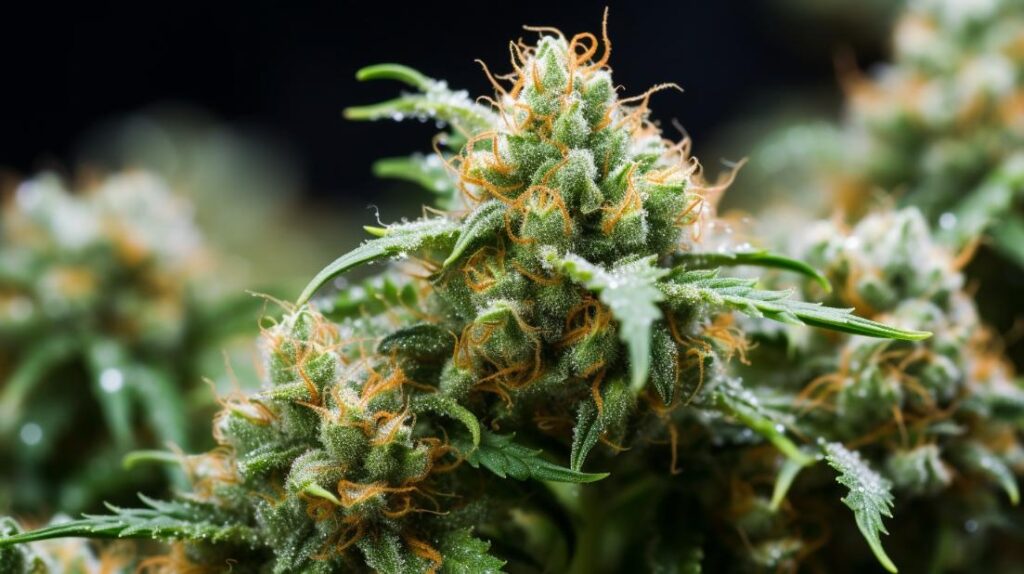
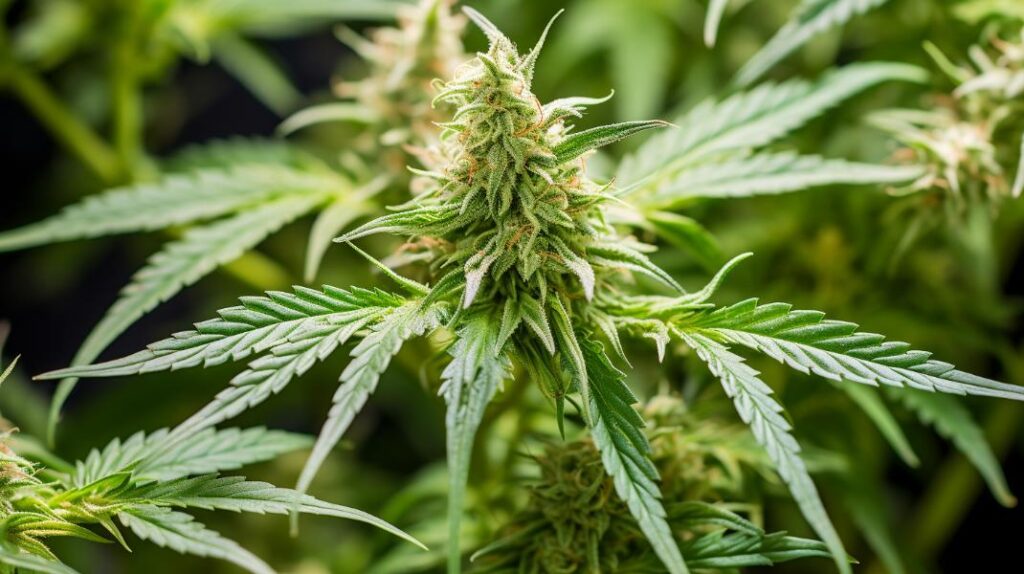
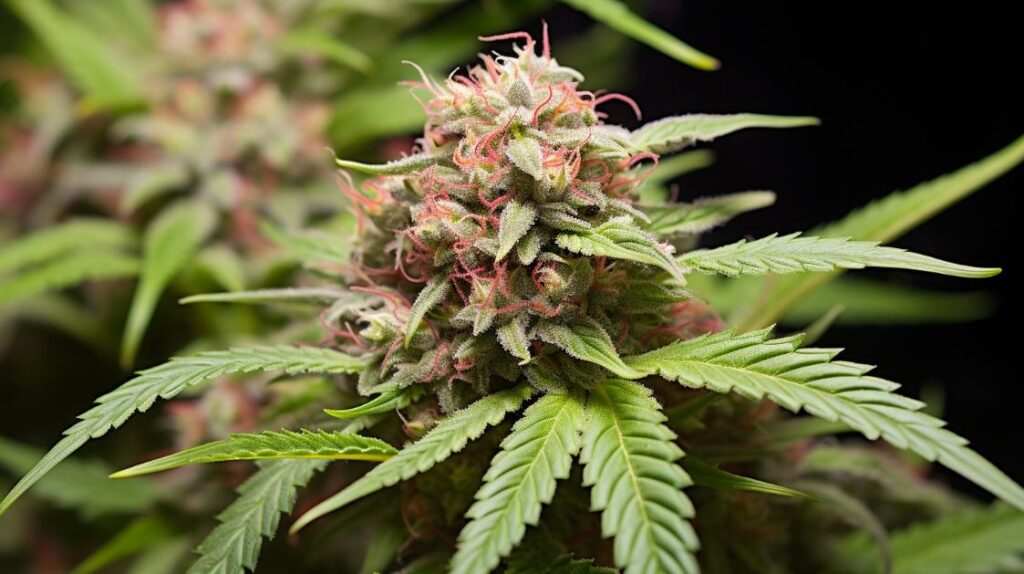
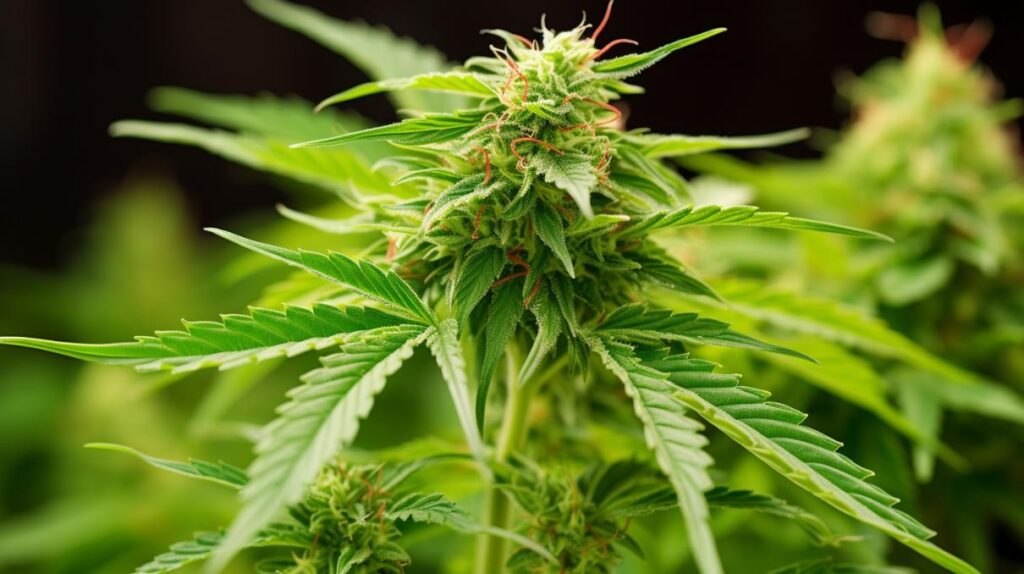
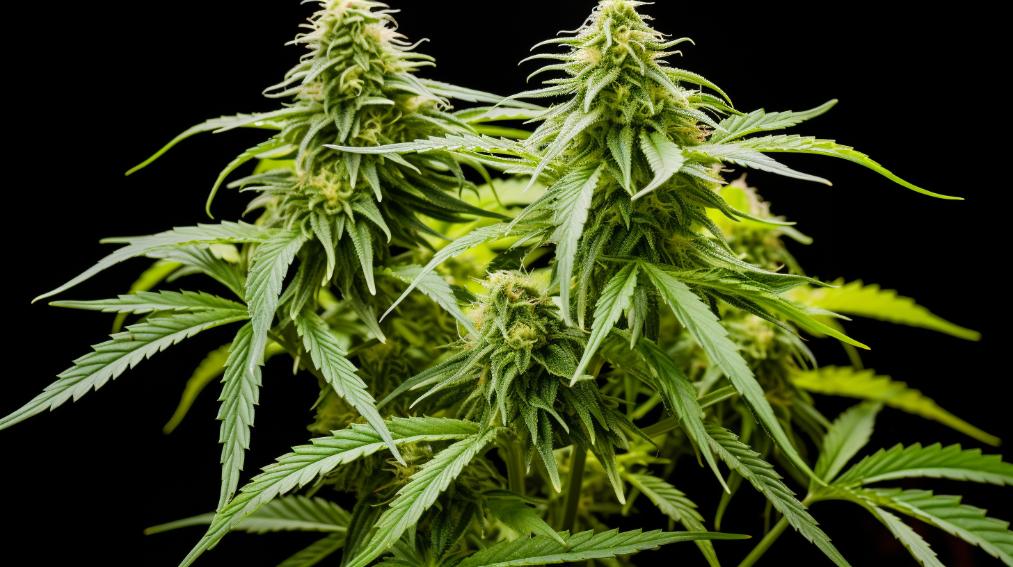

Responses